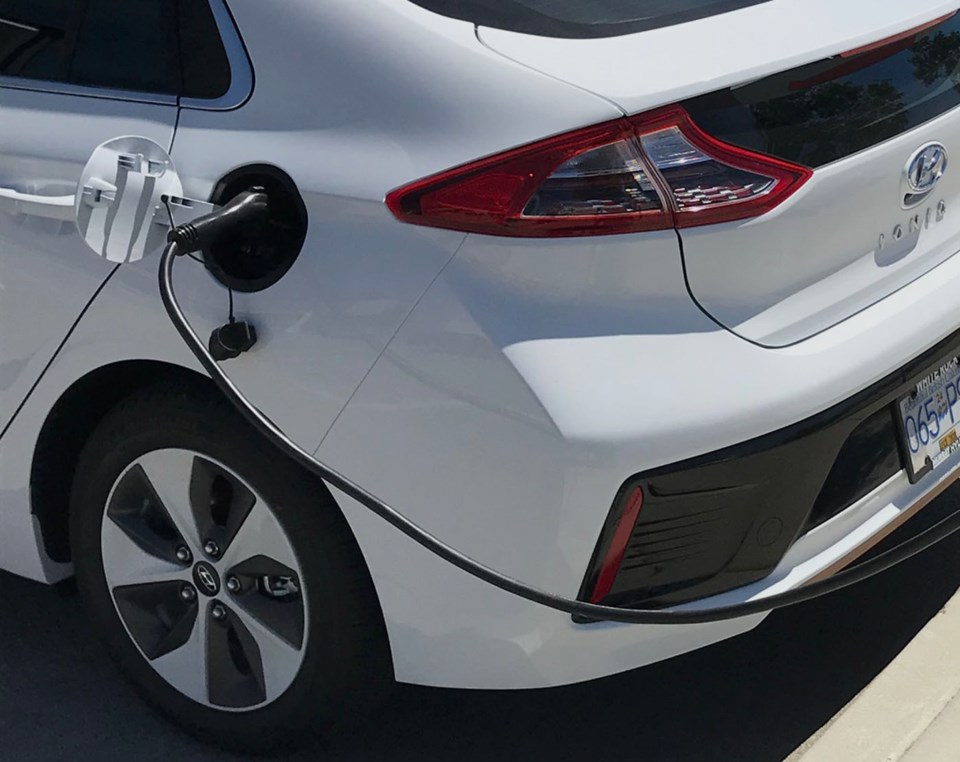The City of Delta is planning to charge a fee for its electric vehicle (EV) charging stations.
That’s according to Mayor George Harvie and city manager Sean McGill during council’s recent discussion on Delta’s 2020 Climate Action Report, which outlined the actions and initiatives by the city last year including the adoption of a new Electric Vehicle Strategy.
Asked how the city can recoup some of the costs of stations, McGill at the May 31 council meeting noted implementing a fee at EV stations will be discussed during council’s 2022 business plan workshop this fall.
Harvie said fast charging stations should not be “on the taxpayers’ dollars” and must be self-funded.
A staff report earlier this year noted, “At this time, Delta-owned stations are free for public use with a maximum two-hour usage time. The intention of providing free public charging, on a temporary basis, is to encourage the adoption of electric vehicles.”
The report also noted, “However, the stations have the capacity to collect fees in the future as determined by council. Staff are monitoring usage at Delta's charging stations and will report back to council with further details and recommendations for a fee structure that aligns with other municipalities in the region, as contemplated by the Electric Vehicle Strategy adopted by council in 2020.”
The city last year secured funding from Natural Resources Canada for 20 new EV charging stations with many installations to occur this summer.
The city is also working on updating the zoning bylaw with increased requirements for EV charging stations in new construction.
Harvie also suggested staff begin looking at having the municipal vehicle fleet switched over to electric to meet ambitious federal government targets for zero emission vehicles in the next few years.
Next Monday (June 14), council will discuss awarding a contract to install the new EV stations as well as making a funding application to senior government for even more stations.
The provincial government this week announced how B.C. is charging ahead in expanding its EV charging network with more than 50 per cent of the public fast-charging sites required to meet the province's 2040 demand already built or underway.
The province notes that more than 54,400 EVs are on the road in B.C., leading to an estimated 216,000 tonnes in emission reductions per year.
To support the growing number of EVs, the BC Public Light-Duty Zero-Emission Vehicle Infrastructure Study will serve as a guide for municipalities, First Nations communities and the private sector to invest in further expansion.
According to the report, the number of zero-emission vehicles (ZEVs) forecast in B.C. by 2040 may reach over 2.5 million.
This province also notes that vehicle population will require approximately 400 fast-charging sites throughout the province.
As of December 2020, B.C. had 205 fast-charging sites built or underway.




